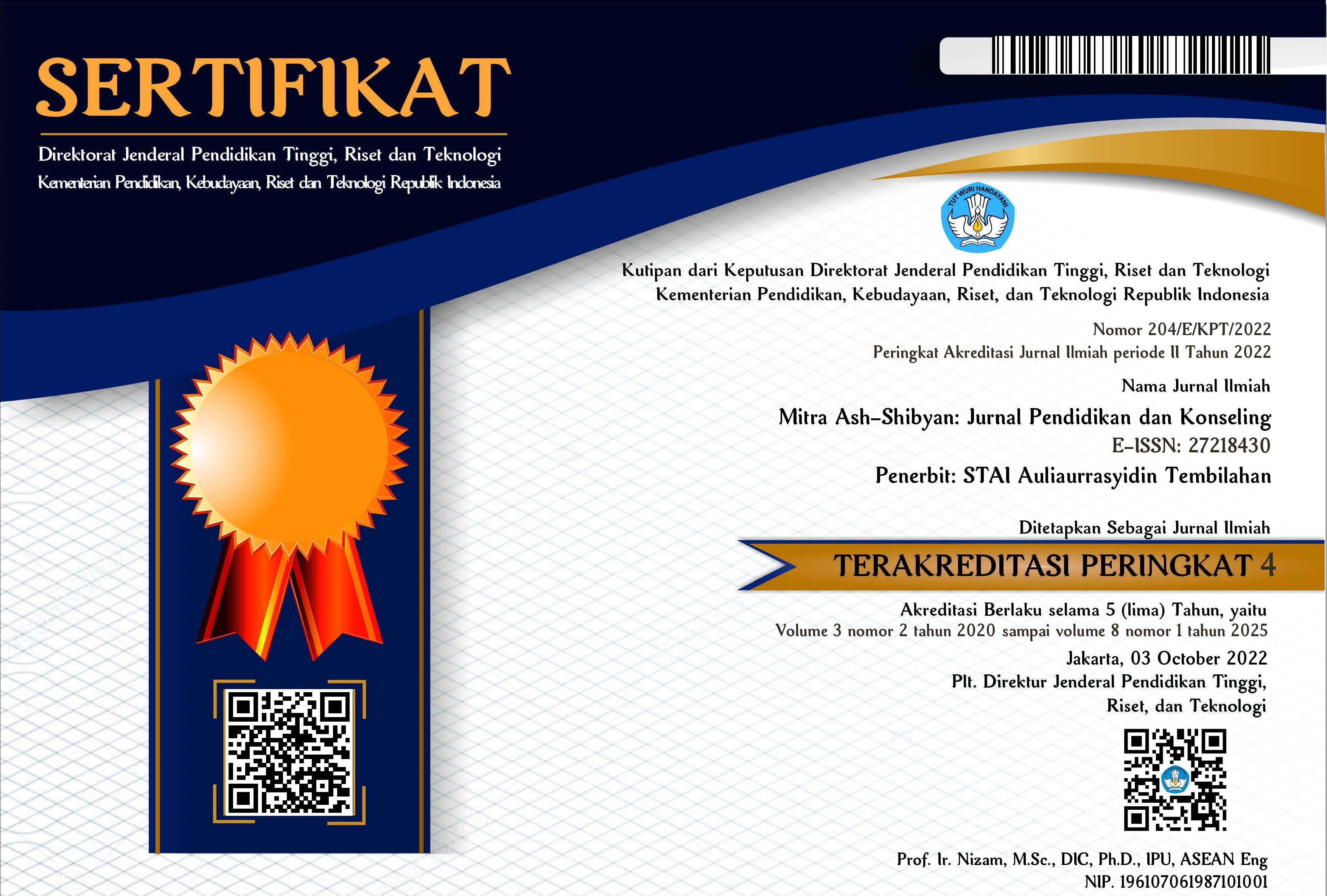Optimalisasi Dan Simulasi Terhadap Perkembangan Kognitif Anak Usia Dini
DOI:
https://doi.org/10.46963/mash.v3i01.114Keywords:
Early childhood optimization and simulation, Cognitive developmentAbstract
Cognitive development is one of students’ development that emphases on knowledge –psychological process –to discover surroundings. Developing students’ knowledge is a teacher work. This is an analytical library research that is to show the optimization and simulation on development of the early childhoods’ cognitive. Piaget asserts four cognitive development which one of is preoperational stage. The stage is the early childhood development where they are in a golden age should be optimized through the education. At this stage, they learn through the use of symbols with the latest approach in learning. Teacher can help over the skills process and giving concepts for the students’ refinement of reasoning, so we should be aware of giving interpretation in class by giving them chances to express their ideas.
Downloads
Downloads
Published
Issue
Section
License
Authors who publish with this journal agree to the following terms:
1. Copyright on any article is retained by the author(s).
2. The author grants the journal, right of first publication with the work simultaneously licensed under a Creative Commons Attribution shareAlike 4.0 International License that allows others to share the work with an acknowledgment of the work’s authorship and initial publication in this journal.
3. Authors are able to enter into separate, additional contractual arrangements for the non-exclusive distribution of the journal’s published version of the work (e.g., post it to an institutional repository or publish it in a book), with an acknowledgment of its initial publication in this journal.
4. Authors are permitted and encouraged to post their work online (e.g., in institutional repositories or on their website) prior to and during the submission process, as it can lead to productive exchanges, as well as earlier and greater citation of published work.
5. The article and any associated published material is distributed under the Creative Commons Attribution-ShareAlike 4.0 International License







2.png)



